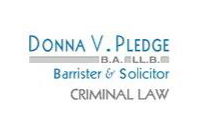What Is Diversion?
An alternative to prosecution for criminal cases, diversion programs are offered by courthouses across Ontario. If the Crown decides that it is unnecessary to take your case to trial, you may be eligible for one of many programs. However, to determine whether this could be a valid and suitable option for you, you first need to understand what a diversion is.
What Is Diversion?
There is no easy answer as to “what is diversion?”, as programs vary considerably in every courthouse and for every offense. One thing all programs do have in common is that they involve completing an activity outside of a court order to enable the Crown to withdraw charges.
Programs range from the very formal, such as the Mental Health Diversion and Extra Judicial Sanctions in the Youth Court, to quite informal, such as making a donation to charity or partaking in a few hours of community service as a way to counterbalance the harm you caused.
Eligibility for Diversion
Most minor offenses are typically eligible for diversion. Such examples include shoplifting an inexpensive item, minor fraud (failing to pay a transit fee, for instance), causing a disturbance, minor property damage, or the possession of a small quantity of marijuana for personal use.
In addition, you will usually only be eligible for diversion if you lack a criminal record. Even dealings with the police that led to no charges may limit your eligibility for diversion. However, all cases are decided on an individual basis. This means it is not always possible to know in advance if you will be offered a diversion.
Only the Crown is authorized to determine whether a case is eligible for diversion, not a judge or justice of peace. Similarly, you must satisfy the Crown in order to complete your diversion. The Crown may pre-approve your diversion, in which case this will be indicated in your disclosure. If you are not pre-approved, your lawyer may request a resolution meeting with the Crown to discuss this possibility.
Completing Diversion
Normally, completing a diversion will mean you do not gain a criminal record. This is the main reason people choose this option over going to trial. However, you should consult with your lawyer beforehand to determine how completing a diversion may affect you in the future.
You can change your mind about completing a diversion at any time and instead have a trial on your charges. It is important to remember that although everyone has a right to trial within a reasonable timeframe, if you do begin a diversion, you are responsible for the delay to your trial and cannot argue that the court violated this right.
If you are charged with an offense, a criminal lawyer may be able to help you receive diversion. Even in the case that you are pre-approved for diversion, it is necessary that you speak to a lawyer before deciding on the right course of action for you. Contact Donna V. Pledge for more information about diversion and legal advice with your case.
